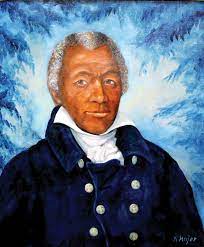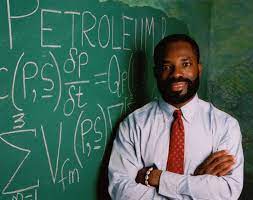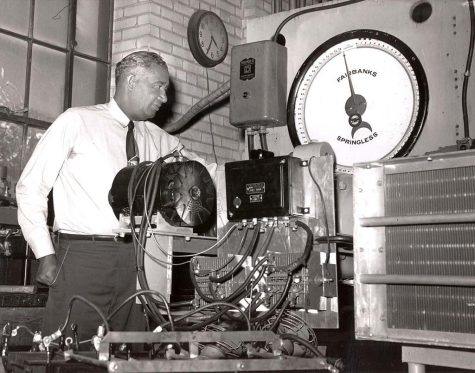Important Black Figures You Were Never Taught

James Lafayette
Black History is full of legendary figures. Martin Luther King JR., Malcolm X, and Rosa Parks are probably the first to come to many people’s minds. But what about those who are not mentioned in textbooks or in major films? What black stories have been left out of history’s pages? It was on this quest to answer these questions that led me to various black contributors around the globe from both modern and past eras, all having unique stories and contributions that still affect us today.
Contributor #1- James Lafayette
James Armistead Lafayette was not your typical American slave. He was enslaved by William Armistead and would later wind up in the service of Marquis de Lafayette, Spying on the British. To give some context, Benedict Arnold (a key revolutionary spy) had just turned on George Washington, so the Continental Army was low on trusted informants. But James Lafayette would change that. Deployed into the enemies camp, he acted as an upset slave runaway to the British, feeding valuable information to Washington and the rest of his armies. But Lafayette did not stop there. One of the basics of the spy game is that information only comes through trust. So what did Lafayette do? He pretended to spy on the Americans to throw the British off. In effect of becoming one of the first black double agents and providing key information in a war, Washington would have had some trouble winning without him. Because of this vital role he played, he was freed by the Marquis and took his surname living as a free man and was a respected farmer to the end of his days. Despite being left out of America’s textbooks, his contribution to this country’s freedom can not be overstated.

Contributor #2- Philip Emeagwali
Philip Emeagwali is who we owe the creation of the Internet to. While he shares the title of Father of the Internet with a few other tech geniuses, the formulas he invented are directly used in many of our phones, computers, and electrical applications. Emeagwali was born in 1954 into a poor Nigerian family and was not able to stay in school for long due to economic issues. However, his genius did not go unnoticed. He was able to attend well known colleges on scholarships such as the University of London, George Washington, and the University of Michigan. It was here in our home state of Michigan, that he made a breakthrough that would change the world. For those who do not know, the reason our phones and other electronics can perform all of these complex functions (such as surfing the web) is because our phones have microprocessors (tiny micro computers) working in unison. This is all due to the hard work of Emeagwali in his Ann Arbor lab. Here, he was able to create a formula that allowed eight computers to communicate with each other in unison. Emeagwali won the Electrical Engineers’ Gordon Bell Prize in 1989, considered the Nobel Prize of computing, and then joined the list of geniuses who share the title the Father of the Internet.
Contributor #3- Frederick McKinley Jones
 Frederick McKinley Jones is an inventor I am truly in awe of. Not only because of what he did, but because of what he was able to create. Born in 1893, he was orphaned at a young age after his parents’ deaths. However he was determined to take the world head on at just eleven years old. Finding odd jobs here and there, Jones realized he had a knack for mechanics at an early age. He was called to service in World War 1 where he trained his all black unit in mechanics, and was known for fixing whatever needed repairs in the war. When he returned, he continued his work in Halock, Minnesota. Here, he attracted the attention of businessman Joseph A. Numero. Numero hired him after seeing his latest invention that combined sound with moving pictures. But what is Frederick McKinley Jones really known for? Refrigeration. Yes, the fridge had already existed, but Jones designed something that transformed the food industry and many others, a transportable fridge. This radical invention would have impacts ranging from people receiving imported fresh fruit, to storing blood and supplies in World War 2. Jones partnered with Numero to create The U.S. Thermal Control Company (later Thermo King). Together, they patented dozens of inventions that changed the refrigeration game. He was posthumously given the National Medal of Technology, the first African American to be given it.
Frederick McKinley Jones is an inventor I am truly in awe of. Not only because of what he did, but because of what he was able to create. Born in 1893, he was orphaned at a young age after his parents’ deaths. However he was determined to take the world head on at just eleven years old. Finding odd jobs here and there, Jones realized he had a knack for mechanics at an early age. He was called to service in World War 1 where he trained his all black unit in mechanics, and was known for fixing whatever needed repairs in the war. When he returned, he continued his work in Halock, Minnesota. Here, he attracted the attention of businessman Joseph A. Numero. Numero hired him after seeing his latest invention that combined sound with moving pictures. But what is Frederick McKinley Jones really known for? Refrigeration. Yes, the fridge had already existed, but Jones designed something that transformed the food industry and many others, a transportable fridge. This radical invention would have impacts ranging from people receiving imported fresh fruit, to storing blood and supplies in World War 2. Jones partnered with Numero to create The U.S. Thermal Control Company (later Thermo King). Together, they patented dozens of inventions that changed the refrigeration game. He was posthumously given the National Medal of Technology, the first African American to be given it.
However, while researching, I had to ask myself, why have I never heard of these people? For someone who prides themself in actively looking for new historical figures (especially black ones), the fact that these names (and many others) never pop up, disturbed me. Sadly, I believe it comes from one of the oldest tricks in the playbook. If you can suppress the accomplishments of a certain group of people, then you can fill it with a washed up, false narrative. The one myself and far too many others are familiar with, goes as follows: Africans were put on ships to work as slaves, only to be freed by a white man, and then be enslaved again by new laws, to only be freed again by the efforts of the black heroes such as MLK, to only still be an oppressed underrepresented minority.
These black contributors that I had the honor to feature in this article are just three out of many others that history books have left out, yet changed the world. America would have had a hard time winning against the British in the Revolutionary War without James Lafayette, The Iphone or computer you’re reading this on would have had a hard time coming into being, without Emeagwali’s Formula, and lastly, a lot of the food that makes its way to your fridge wouldn’t be there without Frederick Jones. It’s true, there’s been pain and struggle in the black story. But African Americans and all Black people around the world are not defined by slavery, poverty, or oppression, but by what comes out of such circumstances. I hope after you read my article, I successfully brought these black figures both contemporary and from our past back into history’s spotlight, giving just a taste of all of the beautiful, innovative, and important contributions that black people have made not just to the United States, but to the entire world.

Hi everybody! My name is Donovan Fobbs, and I have the pleasure of being this year's editor in chief. I’m going to be a senior this year, and this...







Eric Rayford • Feb 26, 2022 at 10:21 am
Very nicely done Donovan! Thank you for researching and sharing. E. Rayford